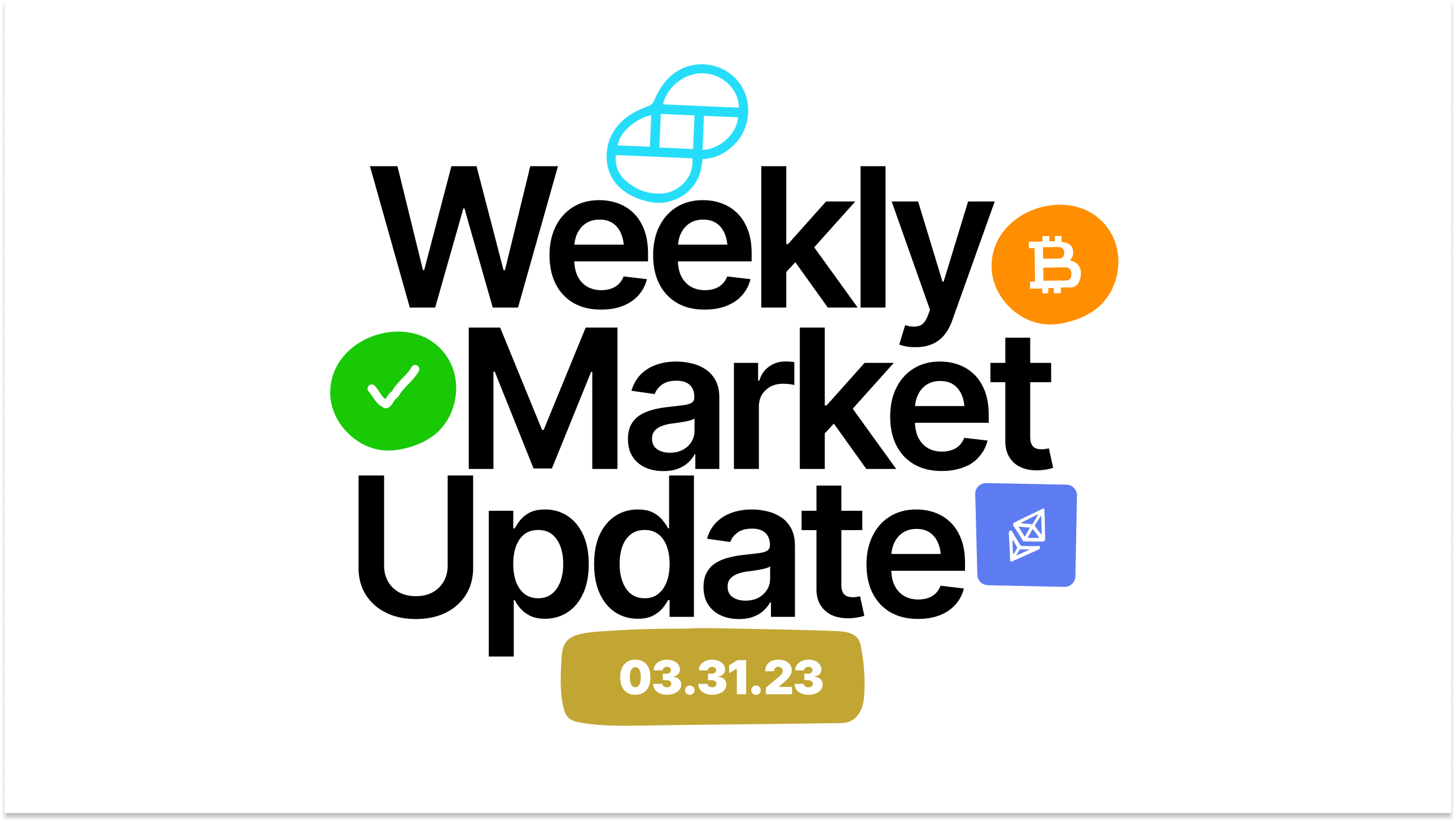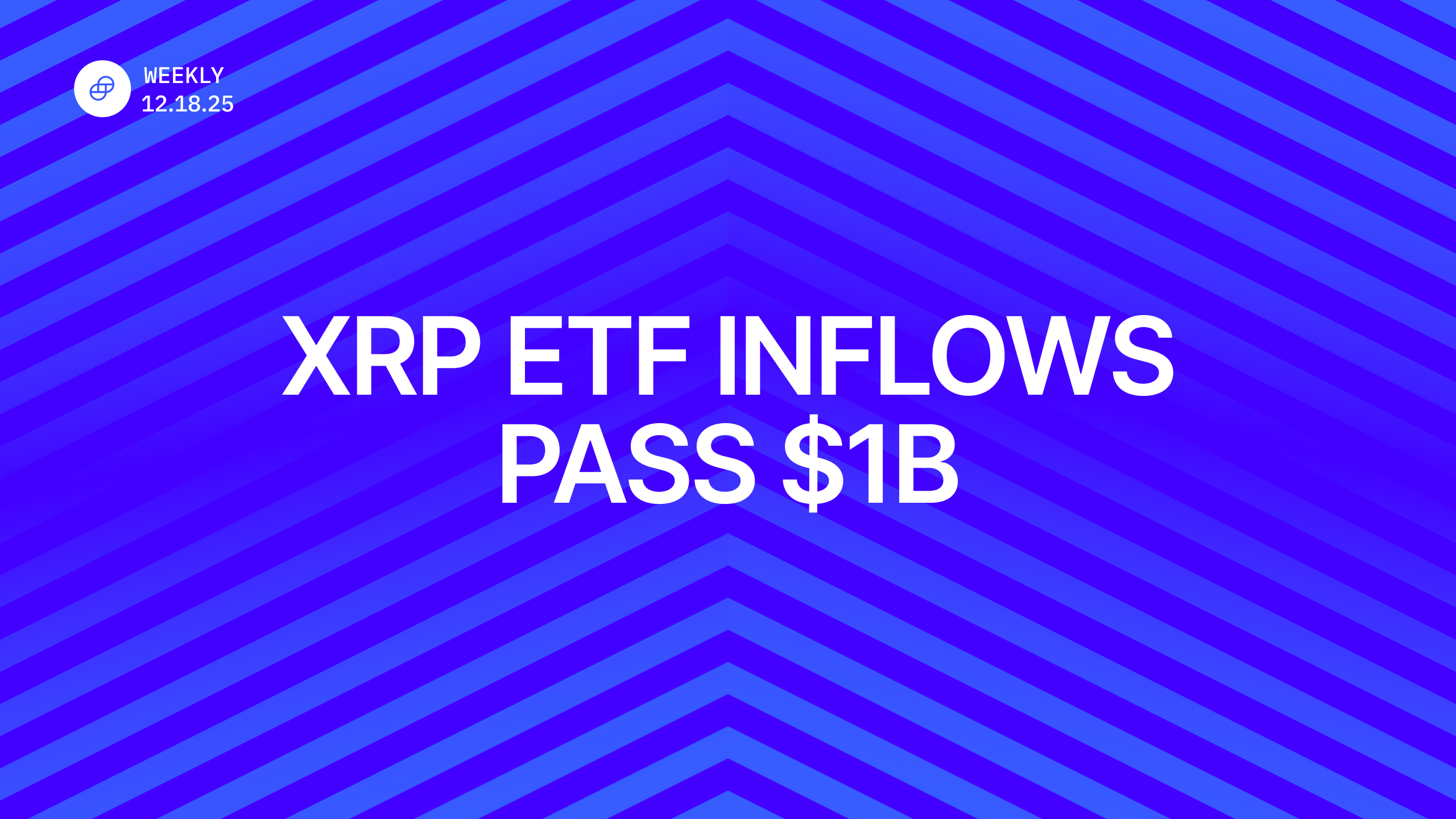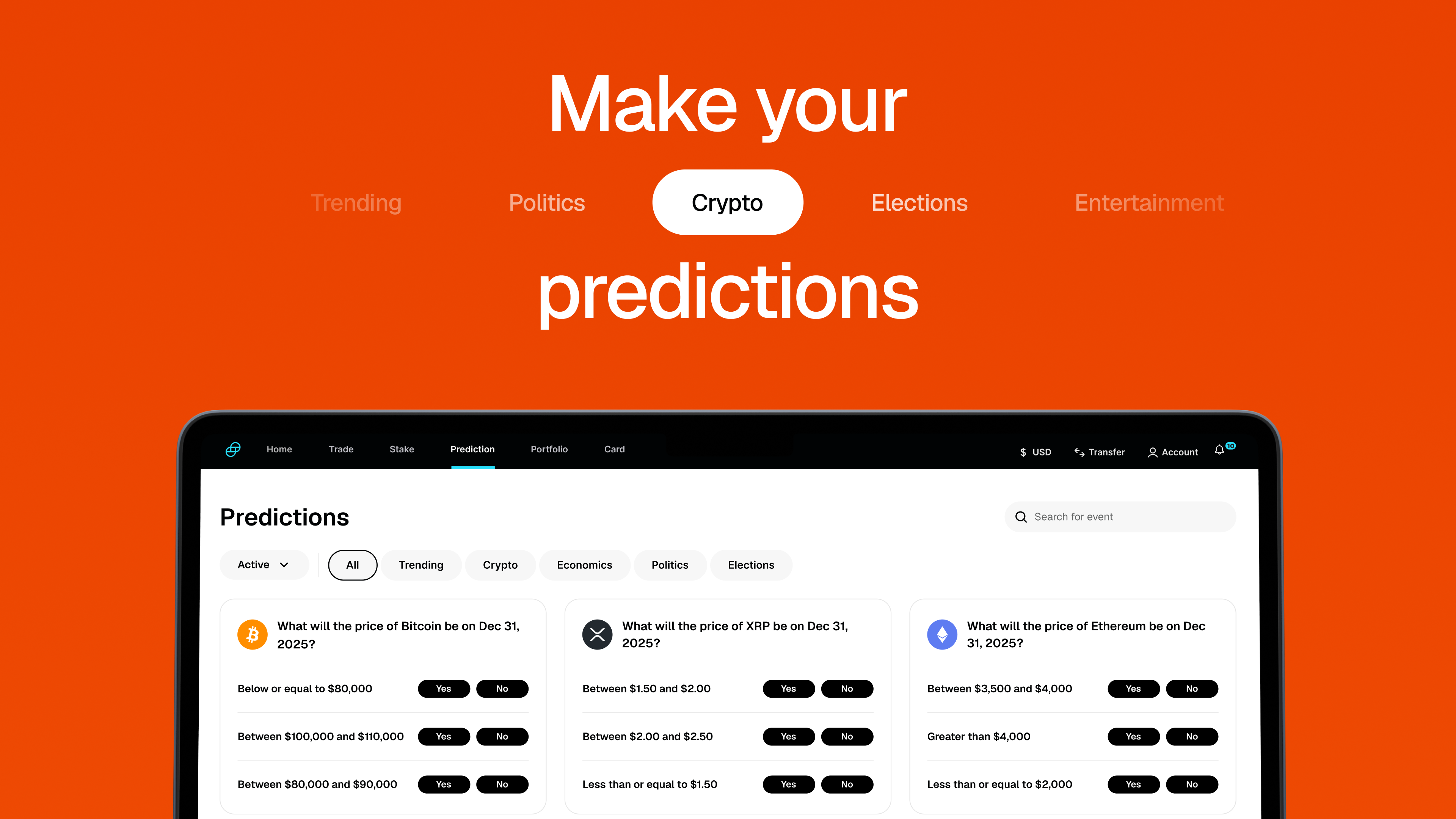MAR 31, 2023
Weekly Market Update - Friday, March 31, 2023

Welcome to our Weekly Market Update.* Explore weekly crypto price movements, read a quick digest of notable market news, and dive into a crypto topic — this week we discuss smart contracts.

Crypto Movers This Week (7D)
| ⬆️ 1.22% | $28,411
| ⬆️ 2.22% | $1,829
| ⬇️ 20.50% | $0.0357
| ⬆️ 15% | $2.472
| ⬇️ 14.40% | $0.0129
Crypto prices as of Friday, March 31, 2023, at 11:50am ET. Percentages reflect trends over the past seven days. .
New to Gemini?

Crypto News: What Happened This Week?
Takeaways: The CFTC sued Binance, alleging, among other claims, that the world’s leading crypto exchange illegally offered derivatives to U.S. persons. The news came on the heels of Coinbase disclosing that the SEC is looking into securities violations related to cryptos listed on the exchange. Despite these actions, and prices showed resilience throughout the week, regrouping just above the $28k USD and $1,800 USD ranges, respectively. Ethereum was also in the news, with the upcoming Shapella upgrades set for April 12, 2023.
CFTC Takes on Binance: The U.S. regulators announced further enforcement actions against companies operating in the crypto market this week. against the world's largest cryptocurrency exchange by market volume, Binance, along with its founder, Changpeng Zhao, and former Chief Compliance Officer, Samuel Lim.
The CFTC alleges that Binance “offered and executed commodity derivatives transactions to and for U.S. persons,” in violation of U.S laws. The CFTC has also highlighted an ineffective compliance program and how employees and customers were instructed to “circumvent compliance controls.”1
saying that the allegations “contain an incomplete recitation of facts” and that Binance “will only be able to give full responses in due time.”2
Crypto and Equity Prices Show Resilience: Despite the turmoil and events of the past month, stocks and crypto have shown strong resilience and are set to end the quarter in positive territory.
Following the announcement of the Binance lawsuit, immediately broke lower. BTC dropped from the ~$28k USD level it had been consolidating at for the past week to ~$26.5k USD, before returning to the ~$28k USD level as investors digested the news. The is up ~6% this year, is trading up ~18% this year, while BTC and are set to end the quarter among the best-performing assets, up ~70% and ~50% year-to-date, respectively.
Regulators Continue on the Crypto Offensive: The CFTC’s lawsuit against Binance comes on the heels of last week’s announcement that , a recommendation from SEC staff for an action against the crypto exchange alleging that its exchange and staking services violate securities laws.
That same day, , the founder of Tron, for the unregistered sale of crypto asset securities Tronix (TRX) and BitTorrent (BTT), and manipulating the secondary market for TRX through wash trading, along with other charges.
Ethereum Tries To Gain Ground on Bitcoin With Shapella Upgrades Coming Soon: rose from a low of ~0.062 on the to trade near ~0.065 on Friday.
The gains came as the industry received an (named Shapella), which have now been confirmed for April 12, 2023. The most anticipated aspect of the upgrades is the ability for stakers to withdraw their staked ETH from the Beacon Chain to the execution layer.
Tokens related to liquid staking protocols on Ethereum such as , , and were among the biggest outperformers this week on the back of the Ethereum upgrade news.
CFTC Chair Reiterates That Ether (ETH) Is a Commodity: received another boost this week as stated that several tokens, including ETH, are commodities. CFTC chairman Rostin Behnam further reiterated his belief that ETH is a commodity . The assertion is positive news for ETH which has previously faced scrutiny on whether it should be classified as a security, notably from SEC Chair Gary Gensler.
-From the Gemini Trading Desk

Crypto Topic of the Week — Smart Contracts
are one of the key components of many ecosystems, and play a foundational role in application-focused blockchains like . With Ethereum increasingly in the news, this week we take a dive into what smart contracts are and the role they play in the crypto ecosystem.
What is a smart contract? A smart contract is a self-executing code or protocol that carries out a set of instructions that is verified on the blockchain. Like traditional contracts, are agreements between two or more parties where one party offers something of value to another and the offer is accepted.
The major differentiator is that a smart contract is run by self-executing code that carries out the terms of the agreement. This code is sent to an address on a as a transaction, where it is verified through that blockchain’s . Once the transaction is included in a , the smart contract is initiated and is typically irreversible.
Smart contracts minimize, or remove, the need for intermediaries and contract enforcement. This greatly reduces cost and simplifies the contract negotiation process. With a smart contract, the code defines the mechanisms of the transaction and is the final arbiter of the terms.
These functionalities have allowed smart contracts to become the building blocks of an entire ecosystem of , and represent a major focal point of blockchain development in general.
Smart contracts and Ethereum. The idea of smart contracts predates blockchain and cryptocurrency, being first proposed by developer Nick Szabo in 1994. Although the made smart contracts a technical reality, it was the protocol that elevated the tech to a foundational element of blockchain.
While simple smart contracts — like — are possible on Bitcoin, the more versatile and complex smart contracts widely discussed and used today were first generated in Ethereum’s fast-proliferating ecosystem of dApps that make up the core of the ecosystem.
Many other projects are building to improve upon Ethereum’s capacity for execution of smart contracts. These projects are adding features such as increased throughput, lower transaction costs, and privacy enhancements. There are also several blockchains that are assertively expanding smart contract use cases and market share, and further developing the technology.
What are some smart contract use cases? A solitary smart contract can only be used for one transaction type: If a specific process occurs, it is followed by another related process. But, most dApps work by bundling smart contracts together to create sophisticated functionality. There are thousands of dApps across the various blockchain networks, ranging from finance to , exchanges, and media — and they all use smart contracts in different ways.
In the DeFi sector, smart contracts allow for interest on deposits and loans, and trading and investing, typically only available through traditional financial services organizations. Further, smart contracts can be set up for trading, inventory tracking, and betting, , legal contracts, online auctions, automated mortgages, and an ever-growing number of use cases.
.
See you next week. Onward and Upward!
Team Gemini
*This material is for informational purposes only and is not (i) an offer, or solicitation of an offer, to invest in, or to buy or sell, any interests or shares, or to participate in any investment or trading strategy, (ii) intended to provide accounting, legal, or tax advice, or investment recommendations, or (iii) an official statement of Gemini. Gemini, its affiliates and its employees do not make any representation or warranty, expressed or implied, as to accuracy or completeness of the information or any other information transmitted or made available. Buying, selling, and trading cryptocurrency involves risks, including the risk of losing all of the invested amount. Recipients should consult their advisors before making any investment decision. Any use, review, retransmission, distribution, or reproduction of these materials, in whole or in part, is strictly prohibited in any form without the express written approval of Gemini.
1
2
RELATED ARTICLES

COMPANY
DEC 19, 2025
Hyperliquid Is Now Available On Gemini

WEEKLY MARKET UPDATE
DEC 18, 2025
Visa Launches USDC Settlement Capabilities and Stablecoin Advisory Practice, XRP ETF Inflows Surpass $1B, and UK Treasury Makes Plans for Crypto Legislation

COMPANY
DEC 15, 2025